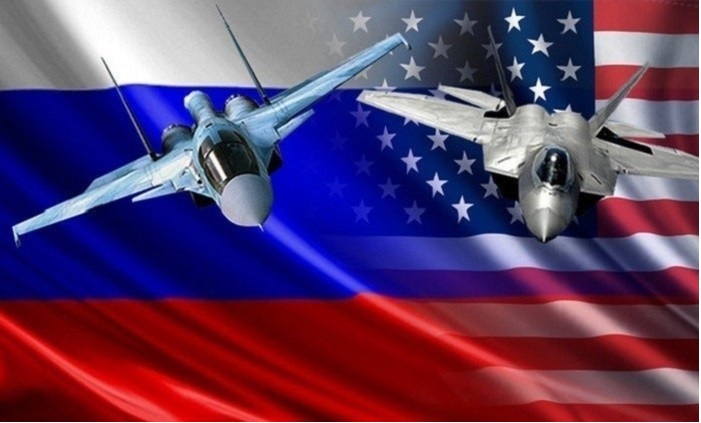Doaa Adel
The latest exchange of accusations between the US and Russia against the background of attacks on two Russian airbases in Syria brought to light yet again support by the two states to radical Islamist groups so that they can use them to serve their own interests.
The Russian Defense Ministry said in a statement that ten drones rigged with explosive devices descended over the Russian Hmeimim airbase, while a further three targeted the Russian Naval CSS point in the nearby city of Tartus on January 5 and 6.
The attacks, the ministry added, did not cause any casualties or damage.
It noted that the village of Muwazarra in the southern Syrian Idlib province, which is designated as a “de-escalation zone” under a deal between Russia, Turkey and Iran, had been identified as the launch site of the 13 drones.
Russia also accused a country it did not name of providing Syrian opposition militants with advanced technological capabilities.
The Pentagon was quick to deny the accusation, something that made Russian Defense Minister, Sergey Shoygu, believe that the US could have been behind the aggression.
Radical Islamist groups have apparently become the buzzword in tensions between the US and Russia. Early in 2017, Russian President, Vladimir Putin, said problems between his country and the US had not come to an end yet.
Putin even expressed hopes that the New Year would witness some improvement in relations, given the fact that Russia and the US had agreed on the need for fighting terrorist organizations in Syria and Iraq.
Ten months later, however, Russian Prime Minister, Dmitry Medvedev, said Russia and the US were not rivals only, but even “enemies”. Medvedev said this against the background of what he described as “bloody provocations” made by the international coalition against Russian troops in Syria.
A short time later, Russian Deputy Defense Minister, Alexander Feklisov, said terrorist organizations were the byproducts of huge political, military and financial efforts made by other countries.
These organizations, he said, are created to serve the interests of some parties, describing these organizations as mere “dolls” in the hands of countries that support terrorism.
Some people, meanwhile, think these accusations also apply to Russia which gained presence in Syria with the ostensible aim of rebuilding the Arab state, but in essence wanted to have military bases in the country only.
Before he was assassinated in London in 2006, retired intelligence officer, Alexander Litvinenko, talked about an obscure relationship between Russian gangs and then-senior al-Qaeda leader, Ayman al-Zawahiri.
The Russian mafia, he said, was involved in the selling of nuclear arms to radical Islamist groups that strived to acquire advanced weaponry.
This was seconded by Ahmed Salama, a member of the consultative council of Jihad Organization in Egypt.
He said al-Zawahiri was detained for six months in Dagestan, even as the authorities in that country did not make this public.
The then-second-in-command in al-Qaeda was arrested in Dagestan with a fabricated passport.
Osama bin Laden, Salama said, had succeeded in getting al-Zawahiri out of jail in Dagestan by greasing the palms of officials in the country.
During his six months in jail in Dagestan, Salama added, al-Zawahiri made friends with a number of Russian mafia figures.
Al-Zawahiri reportedly succeeded in buying three Russian nuclear bombs that were then taken to Afghanistan.
This information lacked credence until 1996 when a senior advisor of former Russian president, Boris Yeltsin, told the Middlebury Institute of International Studies at Monterey that some of the small bombs that were manufactured for the sake of the Soviet intelligence had disappeared from arms warehouses.
In May 1997, a US congressional delegation met Alexander Lebed, a former secretary of the Russian Security Council.
Lebed told the members of the delegation that as many as 84 small nuclear arms had disappeared from the Russian arsenal.
These arms, he said, most probably went to the hands of Islamist extremists.
Lebed added that some of the disappeared bombs were so small that they could be carried in a single small bag.
Chechen rebels sold 20 nuclear bags to bin Laden in return for $30 million, according to Lebed.








































admin in: How the Muslim Brotherhood betrayed Saudi Arabia?
Great article with insight ...
https://www.viagrapascherfr.com/achat-sildenafil-pfizer-tarif/ in: Cross-region cooperation between anti-terrorism agencies needed
Hello there, just became aware of your blog through Google, and found ...